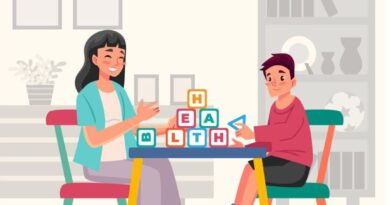Attention Deficit Hyperactivity Disorder (ADHD): What You Need to Know
Both kids and adults can suffer from Attention Deficit Hyperactivity disease (ADHD), a prevalent developmental disease. It is characterized by a persistent pattern of inattention and/or hyperactivity-impulsivity that interferes with functioning or development.
What is ADHD?
ADHD is a complex disorder that is not fully understood. However, it is thought to involve changes in the brain’s reward system. When a person with ADHD engages in activities that are stimulating or rewarding, the brain releases dopamine, a neurotransmitter that is associated with pleasure. Over time, the brain becomes less responsive to dopamine, which leads to the need for more stimulation or reward to achieve the same level of pleasure. This can lead to impulsive behavior and difficulty paying attention.

Types of ADHD
There are three main types of ADHD:
- Inattentive type: This type of ADHD is characterized by a persistent pattern of inattention, such as difficulty paying attention to details, difficulty sustaining attention in tasks or play, not listening when spoken to directly, not following through on instructions, difficulty organizing tasks and activities, avoiding, missing items necessary for jobs or tasks, getting easily distracted by distracting stimuli, and forgetting daily tasks are all signs that someone dislike or reluctance to perform tasks that involve sustained mental effort, misplacing items required for jobs or activities, readily becoming sidetracked by unrelated stimuli, and forgetfulness in daily routines.
- Hyperactive-impulsive type: This type of ADHD is characterized by a persistent pattern of hyperactivity-impulsivity, such as fidgeting or squirming in seat, leaving seat in classroom or other situations in which remaining seated is expected, running or climbing in situations where it is not appropriate (in adolescents or adults, may be limited to feeling restless when not engaged in stimulating activities), chatting excessively, answering questions before they have been fully answered, having trouble waiting their turn, and playing or participating in hobbies silently.
- Combined type: This type of ADHD is characterized by a combination of inattentive and hyperactive-impulsive symptoms.
Causes of ADHD
The root reasons behind ADHD are complicated and still not fully known. However, there are a number of factors that are thought to contribute to ADHD, including genetics, environment, and brain development.
Genetics: Some people are more likely to develop ADHD due to their genes. This is because certain genes make people more susceptible to the effects of ADHD.
Environment: The environment can also play a role in ADHD. For example, children who grow up in chaotic or stressful environments are more likely to develop ADHD problems.
Brain development: ADHD is thought to be caused by changes in the brain’s development. These changes can affect the way the brain processes information and regulates behavior.

Signs and Symptoms of ADHD
The signs and symptoms of ADHD can vary depending on the type of ADHD and the individual. Yet, a few widespread symptoms and indicators involve:
- Inattention: Difficulty paying attention to details, difficulty sustaining attention in tasks or play, not listening when spoken to directly, not following through on instructions, difficulty organizing tasks and activities, avoiding, missing items necessary for jobs or activities, getting easily absorbed by irrelevant stimuli, or being inattentive in everyday life are all signs that a person dislikes or is unwilling to take part in tasks that demand prolonged concentration.
- Hyperactivity: Fidgeting or squirming in seat, leaving seat in classroom or other situations in which remaining seated is expected, running or climbing in situations where it is not appropriate (in adolescents or adults, may be limited to feeling restless when not engaged in stimulating activities), difficulty playing or engaging in leisure activities quietly, talking excessively, blurting out answers before questions having been finished, trouble awaiting their turn, interfering with or bothering other people.
- Impulsivity: Acting without thinking, difficulty controlling impulses, making careless mistakes, difficulty delaying gratification, taking unnecessary risks, being easily frustrated.
Online counselling and other psychological services are available through the TalktoAngel portal. They have qualified and experienced therapists who specialize in ADHD and can help you or your child learn how to manage your symptoms and live a full and productive life.
TalktoAngel offers a variety of ADHD counseling services, including individual therapy, group therapy, telemedicine, and online support groups. They also offer assessments, referrals, and educational resources about ADHD.
If you are interested in getting help with ADHD from TalktoAngel, you can visit their website or call their toll-free number. They will be able to answer any questions you have and help you get started with the services they offer.
Here are some of the benefits of getting ADHD counseling from TalktoAngel:
- Convenient: You can access therapy from anywhere, at any time.
- Affordable: TalktoAngel offers a variety of payment options, so you can find a plan that fits your budget.
- Confidential: Your sessions are completely confidential, so you can be sure that your privacy is protected.
- Effective: TalktoAngel’s therapists are highly qualified and experienced, and they can help you develop the skills you need to manage your ADHD and live a full and productive life.
If you are struggling with ADHD, I encourage you to reach out to TalktoAngel for help. They can offer you the support and guidance you need to live a happy and healthy life.




